What Are the Warning Signs of Early Menopause?
Fertility Treatment
As women age, they naturally experience menopause and its symptoms. Menopause usually occurs in the early 50s and indicates the end of menstrual cycles and the inability to get pregnant.
The menopause process may begin prematurely in some women due to various factors such as ovary removal, chemotherapy, and hormonal problems. This condition is primary ovarian insufficiency (POI) or Early Menopause (Premature Menopause).
Early menopause symptoms are not different from normal menopause, the most important of which is irregular menstruation. Menopause also causes unpleasant symptoms such as hot flashes and weight gain.
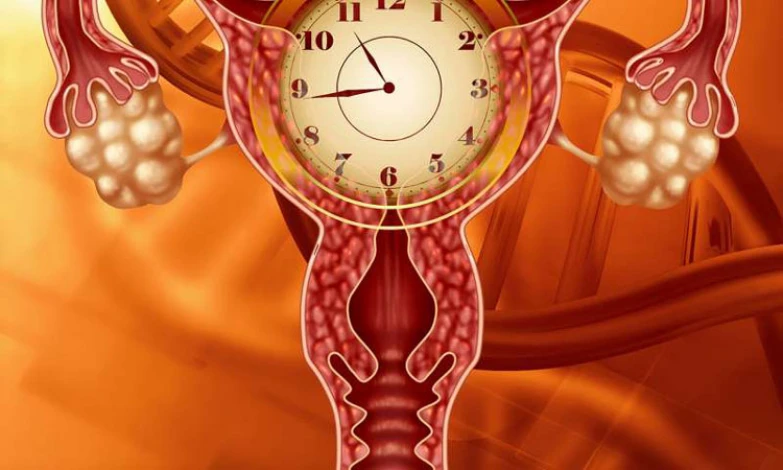
What Is Early Menopause?
Early menopause occurs when the ovaries stop functioning correctly before 40. During this condition, the menstrual period stops, estrogen levels decrease, and FSH levels increase. Approximately 1 to 4% of women go through premature menopause and so experience infertility.
Girls usually are born with a specific number of eggs. Their ovaries release one egg every month from puberty until their 50s; the process continues until menopause when their ovarian reserve becomes zero. Therefore, premature ovarian failure causes young girls to experience early menopause.
There are two types of premature menopause: primary and secondary. In both types, the female ability to get pregnant is disturbed. The difference between primary and secondary early menopause is mainly when it happens. Early menopause is when menopause happens before age 45, but Premature menopause happens before age 40. Menopause isn’t a process; it’s a point where menstruation ends. We can also mention that the difference is that the primary type occurs due to the complications of some diseases or certain treatment methods. In contrast, secondary premature menopause happens as a result of hormonal disorders.
What Is the Difference between Premature Ovarian Failure and Menopause?
As said above, menopause prevents natural pregnancy. At the same time, premature menopause refers to ovarian failure that hormone replacement therapy can often treat. Some symptoms of premature menopause, like vaginal dryness and hot flashes, are similar to those of menopause. However, early menopause can also increase the possibility of heart disease and osteoporosis.
Furthermore, premature ovarian failure does not occur due to women's aging.
What Are the Symptoms of Early Menopause?
Some women may experience no symptoms before the onset of premature menopause except for being unable to get pregnant. Others have the same symptoms as those of natural menopause. Some of these symptoms are as follows:
- Hot flashes;
- Night sweats;
- Insomnia;
- Boredom;
- Vaginal dryness;
- Fatigue;
- Painful Intercourse;
- Reduced libido;
- Irregular periods (very long or short menstrual periods);
- Heavy menstrual bleeding;
- The long gap between periods;
- Mood swings;
- Dry and burning mouth;
- Increased facial wrinkles;
- Hair loss.
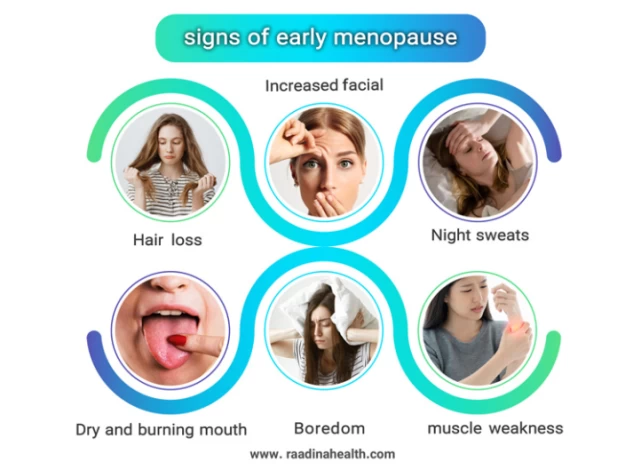
What Are the Causes of Early Menopause?
The causes of early menopause are not clear in most cases. However, it may mainly occur due to the following reasons:
- Chromosomal, genetic, enzymatic, and metabolic disorders;
- Chemotherapy and radiotherapy;
- Certain medications;
- Surgical ovary removal;
- Total hysterectomy;
- Viral infections;
- Abnormal gonadotropin (LH and FSH) secretion.
Some autoimmune diseases include thyroid, hypoparathyroidism, rheumatoid arthritis, diabetes, pernicious anemia, adrenal insufficiency, thrombocytopenia (meager blood platelet count), vitiligo, and lupus can also lead to premature ovarian failure.

The most important causes of premature menopause are explained in detail below:
Genetic Disorders
Several genetic disorders can lead to early menopause, especially when there is an unexplained cause for early menopause symptoms. However, genetic-related causes of the condition can be found to some extent by knowing the menopause age of the patient's mother.
Lifestyle Factors
Some behavioral factors associated with an unhealthy lifestyle increase the risk of early menopause. These habits include smoking due to its anti-estrogenic effects, not getting enough exercise, not eating adequate vegetables, not receiving enough sunlight, etc.

Low BMI
Thinness and a low body mass index (BMI) result in low body fat. Women with low BMI produce low amounts of estrogen. The reason is that estrogen, which strengthens the ovaries, is produced and stored by fat cells.
Early Menopause After Hysterectomy
Early menopause can occur after a hysterectomy, which is the surgical removal of the uterus. This procedure can sometimes lead to the removal of the ovaries as well, resulting in a sudden decline in hormone production. As a result, women may experience early menopause symptoms, such as hot flashes, night sweats, mood swings, and vaginal dryness. Early menopause after hysterectomy can have both physical and emotional implications for women, as it may impact fertility and require adjustments to lifestyle and hormone replacement therapy.
Thyroid Disease
Thyroid disease may cause symptoms such as insomnia, hot flashes, mood swings, and irregular periods, warning signs of early menopause. Therefore, young women can prevent early menopause with early treatment of thyroid problems.
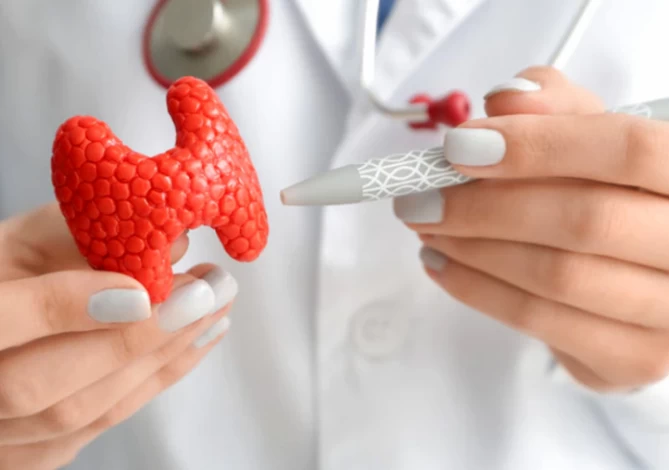
Autoimmune Diseases
Disorders of the immune system, including rheumatism and thyroid disease, cause inflammation and affect the ovaries, leading to early menopause.
Ovary Removal
Hormone levels will decrease in case of surgical ovary removal. This condition leads to amenorrhea and will cause symptoms such as hot flashes, vaginal dryness, and decreased libido.
Chemotherapy and Radiotherapy
Pelvic chemotherapy or radiotherapy to treat cancer sometimes causes ovarian damage and thus will result in amenorrhea, menopause, and infertility. However, it should also be noted that the younger the women are at the time of chemotherapy, the less the possibility of premature menopause occurrence.
What Are the Complications of Premature Menopause?
Ovarian failure or premature menopause can increase the risk of osteoporosis and heart disease. Since early menopause diminishes the eggs, it may result in infertility. In other words, the estrogen hormone that helps strengthen bones decreases in early menopause. Therefore, it can result in weak, fragile bones and osteoporosis.
Other complication signs of early menopause include depression and anxiety caused by low estrogen levels, dementia, etc.
One of the other early menopause symptoms is vaginal dryness. The lack of estrogen in this condition makes the vaginal epithelium thin and fragile, leading to pain during sex, infection, irritation, and itching.
Also, there is a risk of urethritis (when the urethra becomes dry, swollen, or irritable) with aging and the onset of menopause, which increases the possibility of frequent urination and bladder infection.

How to Diagnose Early Menopause?
Women should see a doctor if they observe symptoms like hot flashes and absent periods. A gynecologist examines the patients regarding factors like past ovarian surgeries, radiotherapy, chemotherapy, hormonal disorders, and pelvic infection and then prescribes follicle-stimulating hormone (FSH) levels tested. Measuring the amount of FSH hormone can indicate the proper functioning of the ovaries.
Other diagnostic methods of premature menopause are as follows:
Physical examination
In the examination appointments, the patients discuss their symptoms, including hot flashes, vaginal atrophy, decreased libido, irregular periods, etc.
Ultrasound
The doctor can carefully monitor the ovaries and check the presence of eggs or follicles by performing an ultrasound. It should be noted that some women with ovarian failure may have several remaining eggs.
Hormonal tests
Hormonal tests examine some hormone levels, including low estrogen, low anti-Müllerian hormone (AMH) level by PicoAMH test, high thyroid-stimulating hormone (TSH) level, high follicle-stimulating hormone level (FSH test), high prolactin level, etc.
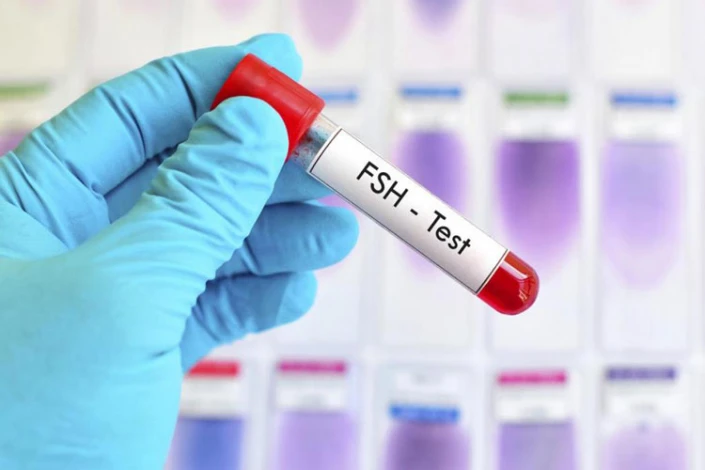
Complementary tests
Several tests can be performed to detect early menopause or the possibility of its occurrence. They include thyroid tests to check irregular periods, ovarian hormone tests, pregnancy tests, prolactin levels tests, genetic tests to check sex chromosome abnormalities, DXA scan (bone density scan), vaginal ultrasound, etc.
Early Menopause Treatment
For choosing how to treat and manage premature menopause, it is necessary to find its causes. Some of the most common early menopause treatments are as follows:
Hormone Replacement Therapy (HRT)
Hormone replacement therapy (HRT) is the main treatment for early menopause. In this method, the doctor prescribes hormonal drugs to replace the lost hormones (hormones that can no longer be produced). During HRT, low doses of estrogen, progesterone, and testosterone are first prescribed, and then the amounts are gradually increased.
Hormonal drugs are tablets, vaginal creams, skin sprays, patches, and gels. To treat early menopause with hormonal therapy, a daily intake of estrogen and a 12-to-14-day intake of progesterone are administered. Hormone Replacement Therapy (HRT) usually continues until the patient turns 51 (the average age of menopause).
The use of estrogen alone increases the risk of endometrial cancer. Therefore, it should be prescribed together with progesterone. Hormone replacement therapy (HRT) cannot restore the ovary's function. However, it causes regular periods. It can be said that the benefits of this type of treatment in young women are more than its risks.
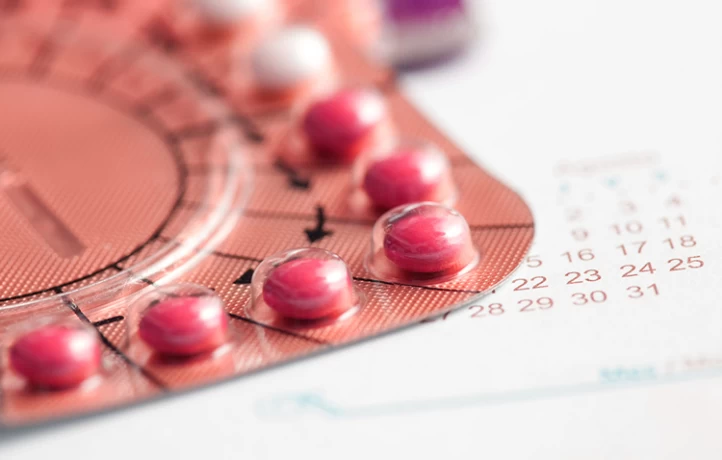
Oral Contraceptives (Birth Control Pills)
Birth control pills are sometimes preferred over hormone therapy in early menopause. If the patient does not intend to get pregnant, two-phase contraceptive pills containing progesterone and estrogen are prescribed.
Taking Calcium Supplements
Some supplements can be prescribed to provide calcium and vitamin D needed by the body during early menopause treatment. Although, a DXA scan should be first done to measure bone density.
Antidepressants
According to sources, the use of antidepressants or selective serotonin reuptake inhibitors has an effective role in controlling hot flashes in 60% of women with early menopause.
Lubricants for Menopause-Related Dryness
As mentioned, vaginal dryness is one of the symptoms and side effects of early menopause. Therefore, different types of lubricants, such as lotions, gels, or non-hormonal lubricants, can treat vaginal dryness.
Assisted Reproductive Technologies
The prospects for menopausal women who want to get pregnant have changed dramatically due to assisted reproductive technology (ART). Menopausal women can still become pregnant with the aid of ART, such as IVF and egg donation. Menopausal women can acquire healthy eggs from younger donors through egg donation, improving their chances of pregnancy.
Lifestyle Change
Along with pharmaceutical therapy, proper diet, regular exercise, and avoiding smoking can help manage early menopause.
How to Get Pregnant with Premature Menopause?
There is a chance of pregnancy for women with early menopause or exposure to this condition. Since premature and early menopause disturbs ovulation, getting pregnant with IVF and egg donation is possible. Although, the donor's age can significantly affect the chance of pregnancy.
Progesterone and estrogen hormonal drugs can also be prescribed along with IVF to improve ovulation. In most cases, taking hormonal drugs alone doesn't help with fertility, and IVF with egg donation is necessary.
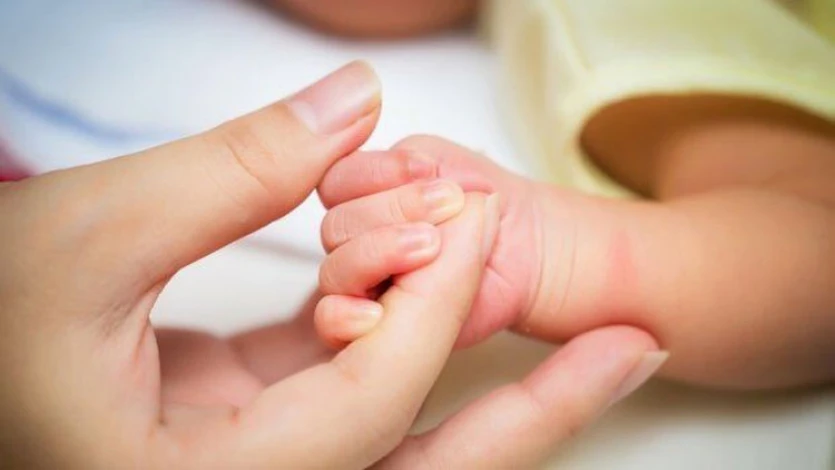
How to Manage Early Menopause?
Patients should manage to reduce the complications of early menopause in its early stages to help lower pain, stress, and discomfort. Although low-dose hormone replacement therapy (HRT) or menopausal hormone therapy (MHT) may have complications, such as an increased risk of breast cancer, they can help manage menopause.
It should also be noted that hormone therapy may not be suitable for patients at risk of blood clots, breast cancer, brain stroke, dementia, and gallbladder disease.
What to Eat for Early Menopause Treatment Naturally?
Following a proper diet can prevent and postpone premature menopause to some extent. Premature menopause Dos and Don'ts are as follows:
Natural foods to eat:
- Low-fat dairy products
Research has shown that daily 2 or 3 units of low-fat dairy products such as cheese, yogurt, and low-fat milk in women with a family history of early menopause postpone the condition by at least 3.5 years. The enzymes inside the bovine milk can increase blood estrogen levels, preventing premature menopause.
- Foods High in estrogen
Foods High in estrogen include buckwheat, barley, clover, soybeans, peas, red beans, and fennel. These foods can prevent premature menopause in women over 30 and significantly control symptoms. The main benefit of foods high in estrogen is that they prevent abdominal fat accumulation by increasing estrogen levels.
- Fish
Fish, especially oily fish, have many omega-3, omega-6, and omega-9 fatty acids, significantly affecting the softening of the bones and the vagina. Therefore, eating fish twice a week can manage symptoms of premature menopause, such as dry joints (also pain during sex due to vaginal dryness) in women exposed to the condition.
Regular intake of fish and foods like green beans can prevent female fertility and will postpone menopause by three years. Furthermore, fatty fish and green vegetables are rich in antioxidants that can regulate female hormones, protect body cells, prevent ovarian failure, improve periods, etc.
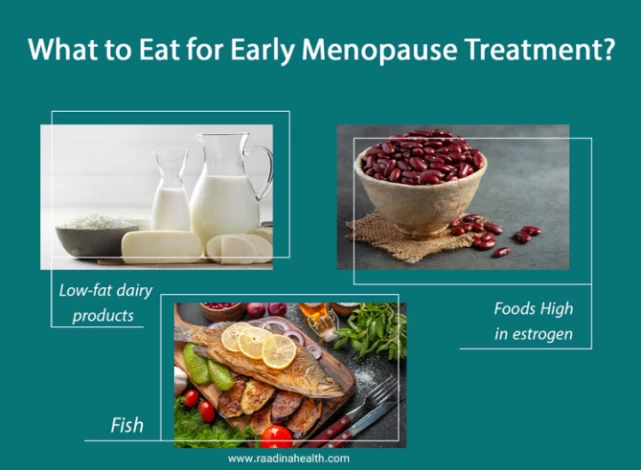
- Vitamin D
Vitamin D is an effective nutrient that can prevent premature menopause. Consuming large amounts of vitamin D and calcium prevents the cessation of ovarian function before age 45.
- Other nutrients
Other effective foods for preventing premature menopause include beef, chicken, turkey, cherries, grapes, berries, lentils, peas, peanuts, and black beans.
Foods to avoid:
- Phthalates
Phthalate is a chemical substance used in plastic containers to make them soft and flexible. Keeping foods or heating foods in plastic containers can add phthalates to food, which will cause side effects such as changes in hormones and early menopause. Therefore, people should avoid storing food. Also, keeping food in glass or stainless-steel containers is important instead of putting hot food in plastic containers and microwaves.
- Frozen food
Ready-to-eat frozen food is often kept in plastic bags containing phthalates and can increase the risk of premature menopause. Therefore, it is better to eat fresh food or, if necessary, use more suitable containers for frozen foods.
- Salt
High blood pressure is among the complications of premature menopause and natural menopause that cause disorders such as cardiovascular diseases. Therefore, women with a family history of early menopause should avoid eating salt and processed foods containing sodium.

- Tea and Coffee
Changes in hormones may disturb women's sleeping hours, which will often be aggravated by drinking tea, coffee, or other sources of caffeine. Therefore, women exposed to early menopause should increase their serotonin levels by consuming 1-2 units of dairy products before going to sleep to have a comfortable sleep.
- Carbs
According to research, excessive consumption of carbohydrates such as pasta, white rice, spaghetti, white bread, cakes, biscuits, and sweets causes premature menopause. Therefore, women with early menopause must follow a balanced and healthy diet.
How to Prevent Premature Menopause?
Following a healthy lifestyle and changing eating habits can help prevent early menopause. Other effective factors that can prevent this condition are:
- Avoiding stress;
- Drinking enough water;
- Consuming seeds and foods rich in estrogen, such as soybeans, flax seeds, sesame seeds, and beans;
- Consuming fresh food instead of frozen food;
- Avoiding foods containing saturated fats, sweets, fast food, and carbonated beverages;
- Eating more vegetables, fruit, and fiber;
- Getting regular exercise and maintaining a healthy weight;
- Consuming dietary supplements for menopause;
A Bottom Line
Although there is no completely effective cure for premature menopause, women can manage the condition's symptoms with the help of pharmacotherapy, hormone therapy, and the intake of supplements. Menopause is a natural phenomenon that every woman will experience one day. Therefore, knowing its symptoms and following healthcare tips can make it easier for women to manage the condition.
Women who have gone through early menopause can get pregnant with the help of IVF. With its many highly qualified fertility centers, Iran is one of the infertility treatment hubs in the world. The most important factors attracting patients worldwide to Iran are its skilled doctors and the affordable Types of Infertility Treatment Methods costs.
Contact us for a free initial consultation about getting pregnant with early menopause.
WhatsAppTelegramFacebookEmail
IVF with Donor Egg in Iran
Currently, IVF with donor egg and sperm is practiced in Iran. In this country, the sperm of the intended father and a healthy donor egg are fertilized by the hands of adept embryologists and fertility specialists in a well-equipped laboratory. The whole procedure of IVF with a donor egg takes a week in Iran, and the couple can return home within 10 days. Moreover, the cost of using donated eggs in artificial insemination methods is cheaper in Iran, incomparable to other countries such as Turkey and India.
We at Raadina Health provide economy packages of IVF for patients seeking IVF treatment in Iran and help them with all they need for a convenient medical trip.
Frequently Asked Questions About Early Menopause
How does family history affect premature menopause?
In case a family member or a close relative is diagnosed with premature menopause, it is recommended that other women in that family see a specialist if they experience any symptoms. Early diagnosis of premature menopause can help restore eggs or prepare them to be frozen for future pregnancies. Early menopause can also occur during adolescence, depending on its causes, genetic reasons, etc. Therefore, no age is too early to begin visiting a gynecologist for routine examinations.
How do the vagina and urinary tract change with menopause?
As estrogen levels decrease with the onset of menopause, it causes vaginal epithelium to become thin and dry, making intercourse painful. Also, some parts of the urinary tract, like the urethra, become dehydrated, swollen, or irritated, causing complications such as frequent urination or bladder infection.
What is the cause of emotional changes during menopause?
Mood swings during menopause are caused due to changes in the body's hormones. The emotional symptoms of menopause include irritability, the feeling of anger, and extreme fatigue.
When is the best time for hormone therapy?
As the estrogen receptors in the target tissues are destroyed after the cessation of menstruation, hormone therapy is not recommended during menopause. Therefore, this therapy should be started before menopause to have a positive effect.
What are the advantages and disadvantages of hormone therapy?
Hormone therapy, such as estrogen therapy, helps treat the symptoms and complications of menopause, especially vaginal dryness, hot flashes, changes in the urinary tract, etc. It also reduces the risk of colon cancer. In addition, taking combined estrogen-progestin pills helps relieve urinary disorders. However, it may have complications like endometrial hyperplasia, endometrial cancer, breast cancer, postmenopausal bleeding, etc.
What factors accelerate menopause besides age?
In the case of surgical ovary removal or hysterectomy, the symptoms of menopause are aggravated due to the suddenly increased hormones in the body.
Why is early diagnosis of premature menopause important?
Since estrogen's role in the female body is to protect the cardiovascular and skeletal systems, a timely diagnosis of low estrogen can prevent the occurrence of heart and bone disorders and premature menopause. Therefore, to avoid other disorders, it is necessary for women with irregular periods (for at least three cycles in a row) who are in their 30th, and even are under 30, to be examined by a doctor.





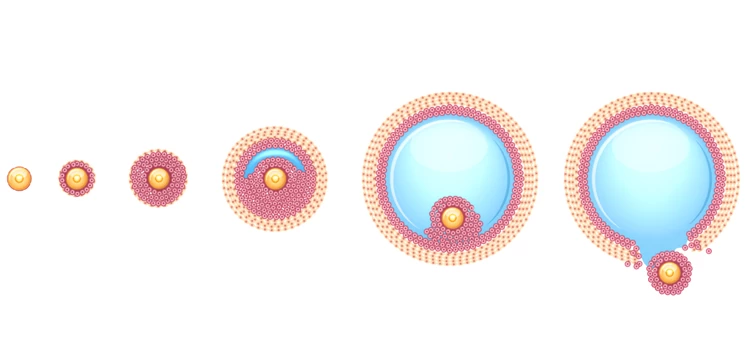
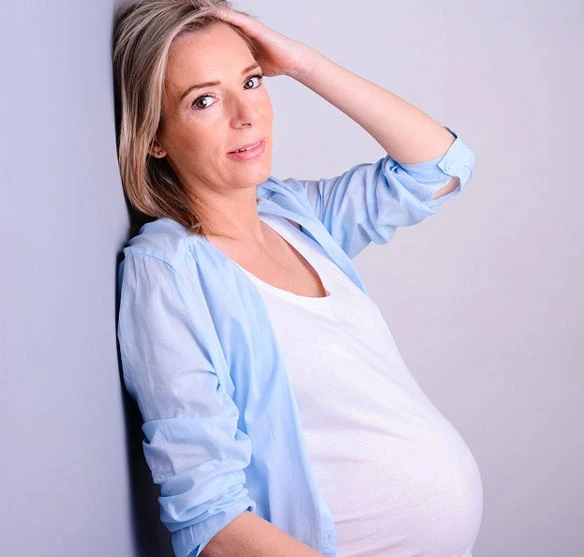
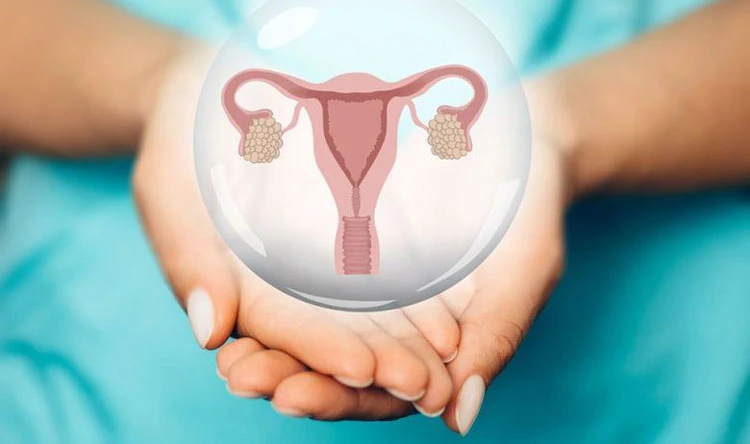
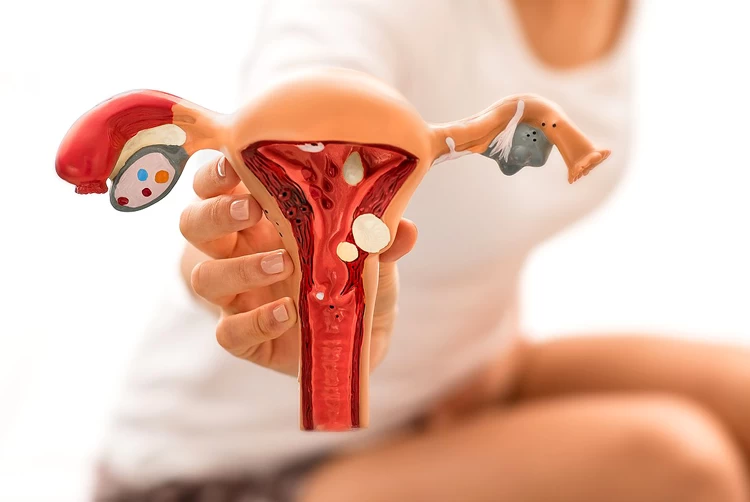

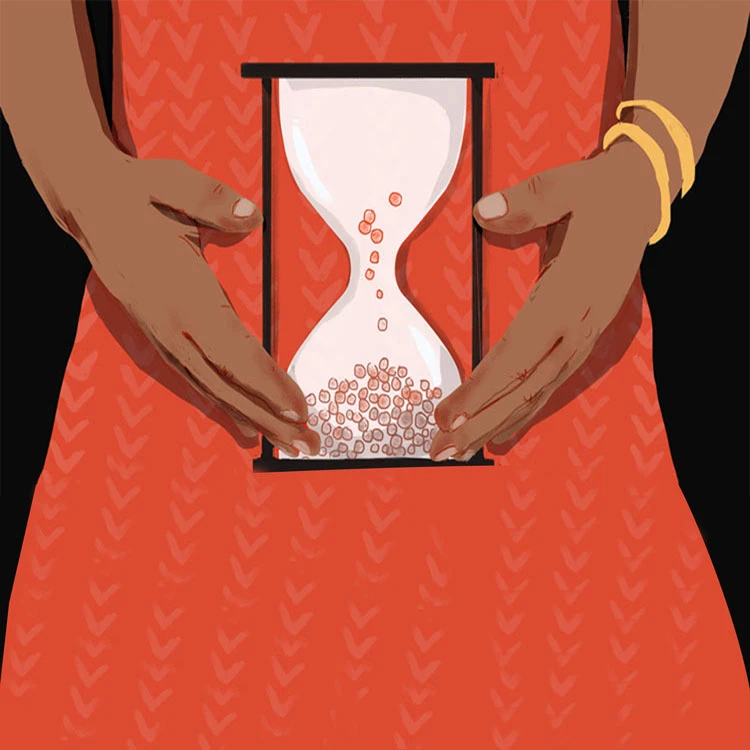
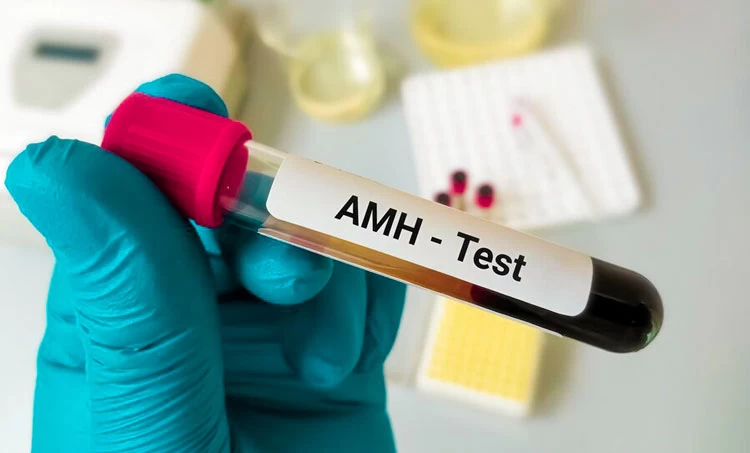




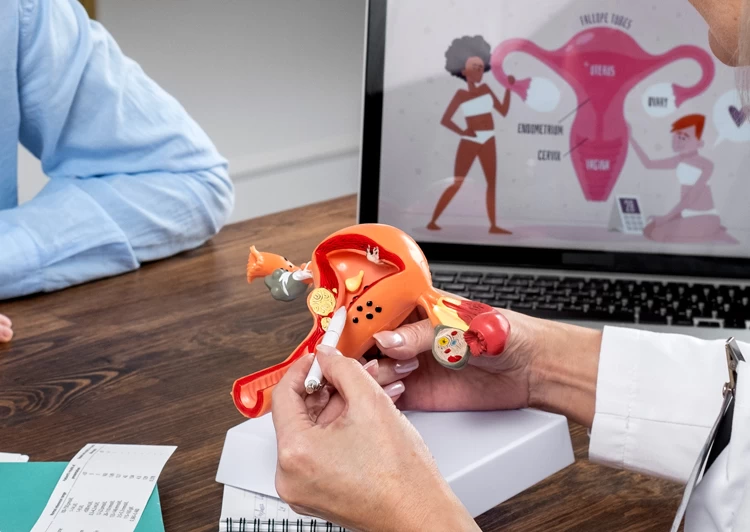
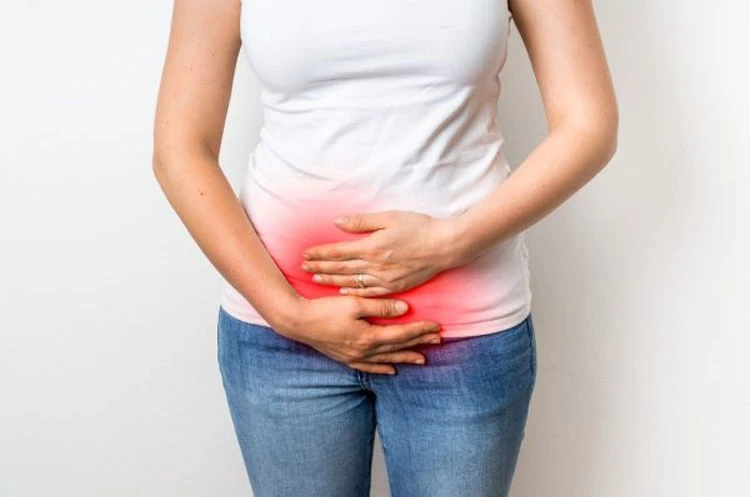

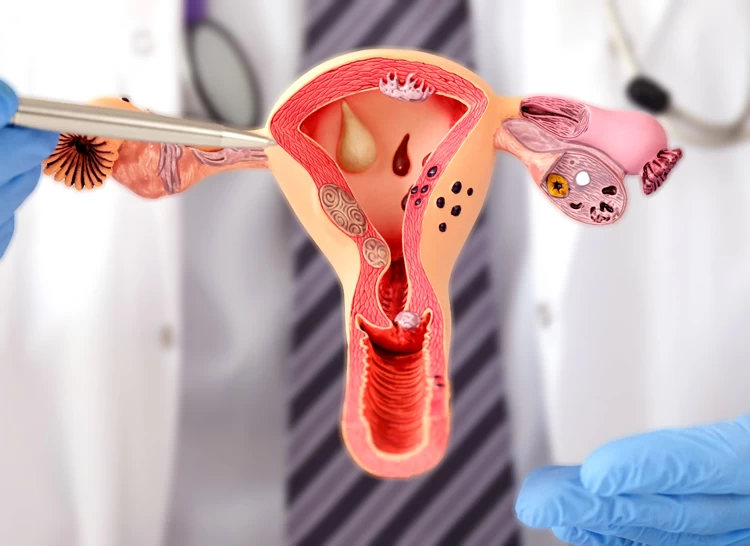

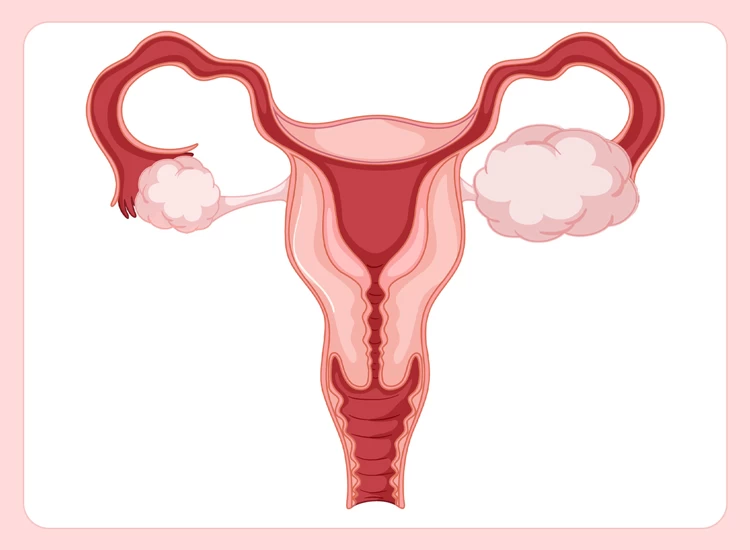
No reviews
Your comment